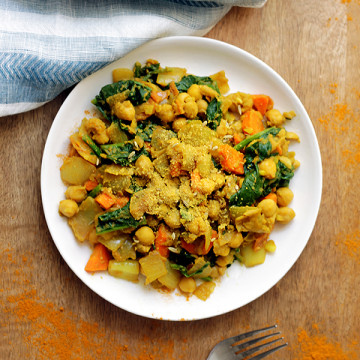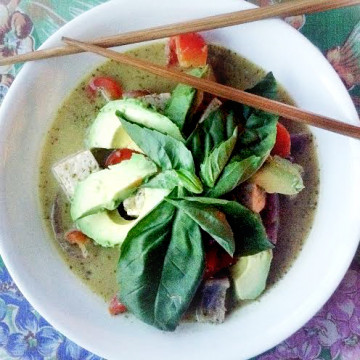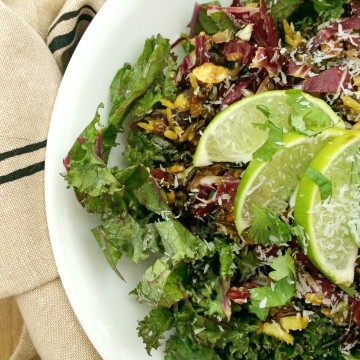Whether you like it hot and spicy, or mild and creamy, curry has a long history and a long list of ingredients. “Curry” is most likely a British term that dates back to the 18th century. However, India takes credit for being the first country to invent curries.
In the past, to be called a curry, a dish had to include certain spices in specific proportions. These spices included: tamarind, onion, coriander, chili pepper, turmeric, cumin, fenugreek, pepper, and mustard. Just as curry has expanded, so has the recipe, which is why there are so many different spices that can be used and still be considered a curry spice mix. Nowadays, the spices found in curries have expanded to include cloves, cardamon, ginger, nutmeg, fennel, caraway, ajowan seeds, dried basil, mustard seeds, mace, poppy seeds, sesame seeds, saffron and cinnamon. The popularity of curry has left India and migrated to other countries, such as Pakistan, Bangladesh, Sri Lanka, Nepal, Indonesia, Malaysia, Thailand and the Caribbean, as well as others.
However, although curries contain a plethora of ingredients, if you zero in on the 5 core ingredients found in most curries, you have the secret to good health.
1. Cumin seeds: cumin seeds are the smallest seeds of the coriander family. Despite being small, they pack a lot of nutrients. They are good sources of iron, potassium, phosphorus, magnesium, calcium, and sodium and have small amounts of zinc, copper, manganese, and selenium. In addition, cumin seeds are high in vitamins, like A, C, E, and choline as well as niacin, vitamin K, B6, thiamin, riboflavin, and folate. In holistic circles, curry seeds are thought to potentially prevent cancer and aid in digestion and relief from stomach ailments.
2. Coriander seeds: Coriander seeds are used in India for it’s anti-inflammatory properties and has been studied in the United States for its possible connection to cholesterol reduction. It is also considered a good source of dietary fiber, iron, and magnesium.
3. Ground Turmeric: May slow down the progression of Alzheimer’s disease. Be careful though, its goldenrod color can be hard to clean; it seems to leave a semi-permanent stain when cooked with oil.
4. Mustard seeds: Mustard seeds may prevent bladder, colon and cervical cancer and aid in digestion, according to holistic health experts. In addition, mustard seeds are thought to help improve some skin conditions such as psoriasis and contact dermatitis as well as acne. Along with other health benefits, mustard seeds likely help respiratory conditions like bronchitis and is a general decongestant and expectorant. Mustard seeds have been used in poultices for various ailments since ancient times. Mustard seeds contain calcium, magnesium, phosphorous and potassium as well as vitamin A and folate. While mustard seeds are found in curry, other forms of mustard are also recognized to have health benefits as well.
5. Ground red chili: ground red chili has a wide variety of applications, and has been shown to be beneficial in everything from pain relief, reduced congestion, and stomach ulcer prevention to weight loss and increased cardiovascular health.
Although all five spices can be found in recipes from around the world, they are most often used in conjunction with one another in Indian cooking. A simple Google search turns up thousands of curry recipes, or you can find your own ready-made version in specialty stores and restaurants. Use a premade or homemade curry mix before you roast your veggies for a way to turn up the flavor quotient. Try using curry as the base for a vegan butternut squash soup. It is important to note that while some curry mixes can be pre-made and last for years, some spice mixes, like Indian Garam Masala, should be prepared for each usage. You can find pre-made Garam Masala at specialty stores and well-stocked supermarkets, but the flavors, and probably the health benefits, tend to be much better if you make it yourself.
In alternative health, curry is not only a great way to boost flavor but also thought to prevent cancer, possibly combat Alzheimer’s Disease, relieve pain and inflammation, prevent heart disease, boost bone health, has antibacterial properties and help with liver toxicity. Although many of the benefits of curry come from the inclusion of tumeric in the mix, it is also important to note that curry may actually be harmful to people with gallbladder conditions. Curry is also an anticoagulant so people already using blood thinners should avoid curries and consult a doctor to prevent the possibility of side effects.
Are you hungry yet? Try some of our own vegan curry recipes!
Vegan Thai Green Curry from Scratch
Raw Vegan Curried Coconut Rice
More healthy eating tips: Health Benefits of Mint
Benefits of Different Types of Potatoes and How to Cook them!
Photo: Miikka H via Flickr








